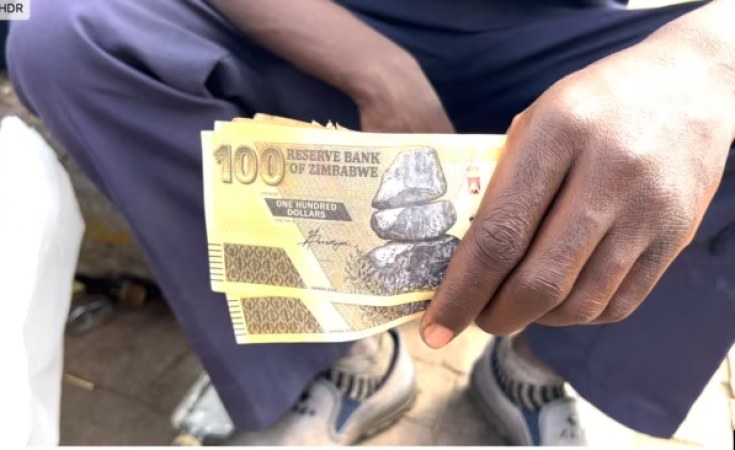Mount Hampden, Zimbabwe — Zimbabwean authorities responded swiftly to the recent decline in the new gold-backed currency by apprehending illicit moneychangers and closing the bank accounts of businesses accused of exclusively dealing in U.S. dollars.
On Monday, Zimbabwe business owners pleaded with parliamentary committees to ask the government to stop arresting moneychangers and re-open the bank accounts of companies accused of only accepting foreign currency.
"This is an inception process of a monetary policy shift," said Sekai Kuvarika, the chief executive officer of the Confederation of Zimbabwe Industries. "So, let's give ourselves time. Let's give the market time. Let's give the policymakers time to iterate how the policy is going to work in our markets. But we definitely do not support that we accompany our policies with the police."
Last week, police arrested several people it said were fueling the black market where Zimbabwe's new currency, called ZiG, introduced earlier this month, is trading at around 20 ZiG for one U.S. dollar.
The government's official exchange rate is 13 ZiG to a dollar.
Owen Mavengere, with the Institute of Chartered Accountants of Zimbabwe, said arresting moneychangers causes panic.
"The parallel market and those dealers in the streets are a symptom of the problem," Mavengere said. "Sending the police doesn't inspire confidence. So, we would rather have a situation where we handle the root cause. And use a soft approach."
He said the government, and government-related services, should be the first to move from the dollar.
"There must be deliberate effort to make sure that the government starts to take the ZiG," Mavengere said.
The government said for now, commodities like fuel and import duties will still be paid with U.S. dollars.
Parliament had summoned Finance Minister Mthuli Ncube and Reserve Bank of Zimbabwe Governor John Mushayavanhu to explain how the ZiG currency rollout would work, but for unspecified reasons neither attended.
Last week, Mushayavanhu announced a shift in the central bank's policies -- vowing to restore confidence in an institution that has failed to stabilize the nation's currency.
Ngonidzashe Mudekunye, chairman of Parliament's Industry and Commerce Committee said he was happy to hear from business owners about the new currency.
"We want to get feedback regarding the new policy, whether it's working, whether the industry has new suggestions that may be helpful, to ensure that this new monetary policy works," he said. "We all want a stable currency. Everyone is crying for it. We got so many views; the market wants a stable currency. This is what we are going to suggest to them."
The next stage for ZiG -- introducing physical notes and coins to the public -- is set for April 30.


